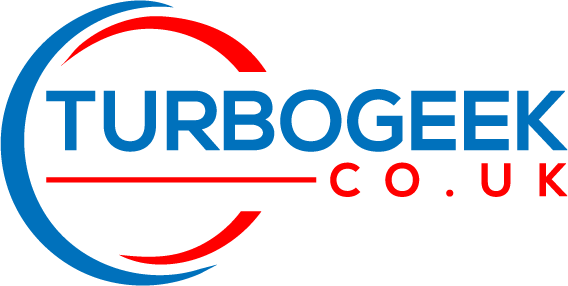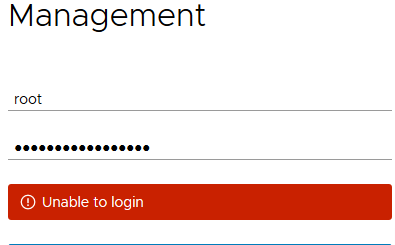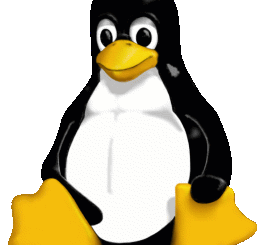Unlock Your PC’s Potential: Why Linux is the OS You Need Now

What is Linux?
If you’re reading this, you’ve probably heard of Linux before. Maybe you’ve heard that it’s a free operating system or that it’s only for programmers and computer nerds. But what exactly is Linux, and why should you use it? In this article, we’ll explore the history of Linux, its open-source philosophy, its security features, compatibility with hardware, customization and flexibility, low cost, and community support. By the end, you’ll better understand what Linux is and why it might be the right choice for you.
History of Linux
It was first created by Linus Torvalds in 1991 as a hobby project. At the time, Torvalds was a computer science student studying at the University of Helsinki in Finland. He wanted to create an operating system that could run on his personal computer based on the Intel 80386 microprocessor. Over time, Torvalds and a community of developers grew Linux into a full-fledged operating system.

Today, it is one of the most popular operating systems in the world, powering everything from smartphones and tablets to servers and supercomputers. Its popularity is due in part to its open-source philosophy.
One of the most significant milestones in its history was the creation of the Linux Foundation in 2007. The Foundation is a non-profit organization that supports the growth of Linux and other open-source software. It provides resources, funding, and support for the community, helping to ensure that it remains a free, open, and accessible operating system for everyone.
The Power of Open Source
A defining characteristic of Linux is its open-source philosophy. This means the source code is freely available for anyone to use, modify, or distribute. This openness contrasts sharply with proprietary operating systems like Microsoft Windows or Apple macOS, where the source code is closely guarded.
The open-source nature of Linux offers several advantages:
- Community-Driven Development: Anyone can contribute to Linux, fostering a collaborative environment of constant improvement and innovation.
- Accessibility: Linux remains free for everyone, regardless of their financial means.
- Transparency and Trust: The open code allows for inspection and verification, promoting trust and accountability.
Linux’s commitment to open source is reflected in its licensing model, typically using the GNU General Public License (GPL). This license guarantees the freedom to use, modify, and distribute Linux, with the condition that any modifications are also made available to others.
Security Features
Linux is known for its robust security features, which make it a popular choice for servers and other mission-critical systems. Unlike proprietary software, where security vulnerabilities can go undiscovered for months or years, Linux’s open-source philosophy means that security flaws are often discovered and patched quickly.
Linux’s security features include built-in firewalls, encryption tools, and access controls. These features can help protect your data and prevent unauthorized access to your system. Linux’s modular design also allows you to customize your system’s security features to meet your specific needs.
Another advantage of Linux’s security features is that they can help you avoid malware and other types of malicious software. Because Linux is less popular than other operating systems like Windows and macOS, it is less of a target for hackers and malware developers. This doesn’t mean that Linux is immune to malware, but it does mean that you’re less likely to encounter it.
Compatibility with Hardware
One of the common misconceptions is that it is difficult to install and configure. While this may have been true in the past, today’s Linux distributions are often easier to install and use than proprietary operating systems like Windows.
Linux’s compatibility with hardware is also much better than it used to be. In the past, finding drivers for your hardware could be challenging, but today most hardware manufacturers provide Linux drivers for their products. Additionally, many distributions come with built-in drivers for popular hardware, making it easy to get up and running quickly.
Another advantage of Linux’s compatibility with hardware is that it is often more resource-efficient than other operating systems. This means that Linux can run on older hardware that might struggle to run Windows or macOS. If you have an older computer that you want to breathe new life into, Linux might be the perfect choice.
Customization and Flexibility
One of the things that sets Linux apart from other operating systems is its customization and flexibility. Because Linux is open-source, you can modify and customize it to meet your needs. This can be as simple as changing the look and feel of your desktop environment or as complex as building your custom Linux distribution.
Linux’s flexibility also extends to the software you can run. Linux distributions come with a wide range of software pre-installed, including web browsers, email clients, office suites, and more. But if you need something that isn’t included, chances are you can find it in the Linux software repositories or by compiling it from the source.
Finally, Linux’s customization and flexibility can help you avoid vendor lock-in. Because Linux is open-source, you’re not tied to a single vendor or software ecosystem. This means you’re free to choose the best software rather than being forced to use what a particular vendor provides.
Free and Low-Cost
One of the most compelling reasons to use Linux is that it is free and low-cost. Unlike proprietary operating systems like Windows and macOS, Linux is distributed under open-source licenses, so you can download and use it for free. Additionally, many Linux distributions come with a wide range of software pre-installed, so you don’t need to pay extra for office suites, web browsers, or other essential software.
Even if you want to purchase a commercial Linux distribution, the cost is often much lower than proprietary operating systems. For example, Red Hat Enterprise Linux, one of the most popular commercial Linux distributions, costs around $349 per year per server. In comparison, Windows Server 2019 Standard costs around $972 per year per server.
Finally, because Linux is free and open-source, you can install it on as many systems as possible without paying additional fees. This makes it an attractive choice for businesses and organizations that need to run multiple systems on a tight budget.
Community Support
Finally, one of the biggest advantages of using Linux is its community support. Because its open-source, a vast community of users, developers, and enthusiasts is willing to help you with any problems you encounter. Whether you’re a beginner or an experienced user, someone can always help you.
Linux’s community support takes many forms. Online forums, mailing lists, chat rooms, and social media groups are dedicated to helping users with Linux-related issues. Additionally, many distributions come with built-in help systems that can guide you through common tasks and troubleshoot problems.
Finally, Linux’s community support extends to the operating system’s development. Because Linux is community-driven, there is a constant stream of updates, patches, and new features being developed by the community. This means that the OS is always evolving and improving, making it a reliable and future-proof choice for your computing needs.
Popular Applications on Linux
One of the common concerns about using Linux is that it doesn’t have as many applications as other operating systems like Windows and macOS. While this may have been true in the past, today, thousands of applications are available for Linux, covering everything from web browsing and email to office suites, multimedia, and gaming.
Some of the most popular applications available on Linux include:
- Firefox: One of the most popular web browsers in the world, Firefox is available on Linux and offers a fast, secure, and customizable browsing experience.
- LibreOffice: A free and open-source office suite with a word processor, spreadsheet program, presentation tool, and more.
- GIMP: A powerful image editing program often compared to Adobe Photoshop.
- VLC: A versatile media player that can handle almost any audio or video format.
- Steam: The popular gaming platform is available on Linux, and many popular games are compatible with the operating system.
Additionally, many popular applications like Google Chrome, Dropbox, and Skype are also available on Linux, ensuring that you can use the software you need on the operating system of your choice.
In conclusion, Linux is a powerful, flexible, customizable operating system ideal for various computing needs. Its open-source philosophy, robust security features, compatibility with hardware, and low cost make it an attractive choice for both personal and business users. Additionally, Linux’s community support ensures that someone can always help you with any problems you encounter. If you’re looking for an alternative to proprietary operating systems like Windows and macOS, Linux might be the perfect choice.
Want to learn more Linux facts? Check out the rest of our Tech Quicky content!!




2 Responses
[…] is a popular choice for desktop and server environments. Whether you’re seeking a powerful Linux alternative to Windows or macOS, interested in exploring new features, or want to set up a robust […]
[…] is the typical command line you may have seen in the data center. However, many desktop versions of Linux use KDE, much like […]